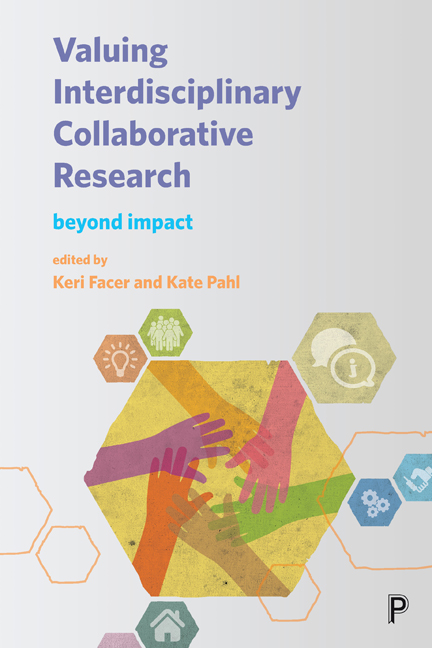SECTION 3 - Future directions
Published online by Cambridge University Press: 05 April 2022
Summary
A changing context
In writing this book, we have had several audiences in mind. We have been writing for those participants in collaborative research who are looking for tools to ask hard questions of themselves about what they are doing as well as needing to narrate its legacy to funders, peers and partners. We have been writing for those institutional supporters of research who are seeking to understand what constitutes the value of this sort of activity, and how this might be judged both before and on completion of projects. We have been writing for that growing band of academics and consultants who are being asked to evaluate and make sense of these complex projects. And we have been writing for the students of collaborative research – in universities and communities – who are just getting started and for whom tools to reflect on the legacies they may wish to leave at the end of the process may be useful.
The process of assessing the value of research, of course, is never neutral. Research is conducted in social, political and economic contexts and attempts to define what counts as high-quality research are implicated in struggles for resources, symbolic power and positional advantage. Today, in particular, debates over the value of research are being conducted in the wider context of the contemporary battle over the idea, purpose and future of ‘the university’. The UK, in particular, is at an ‘interesting’ moment of transformation (some might say crisis) in which the university's identity as an organisation that serves the public good is being increasingly challenged by ideas of the university as an organisation that should serve, primarily, the private and positional interests of fee-paying students and its governmental and commercial partners/funders (Holmwood, 2011; McGettigan, 2016).
At the same time, the technologies and tools available for research are changing significantly. The impact of massive computer processing power combined with large-scale datasets is encouraging the creation of large research teams, working with highly specialised statistical packages, and interrogating information drawn from populations and phenomena around the globe. ‘Big data’ is entering the Social Sciences, promising the capacity to model the social and produce new insights by identifying patterns of causation and relation only perceptible from massive quantities of data.
- Type
- Chapter
- Information
- Valuing Interdisciplinary Collaborative ResearchBeyond Impact, pp. 233 - 244Publisher: Bristol University PressPrint publication year: 2017

